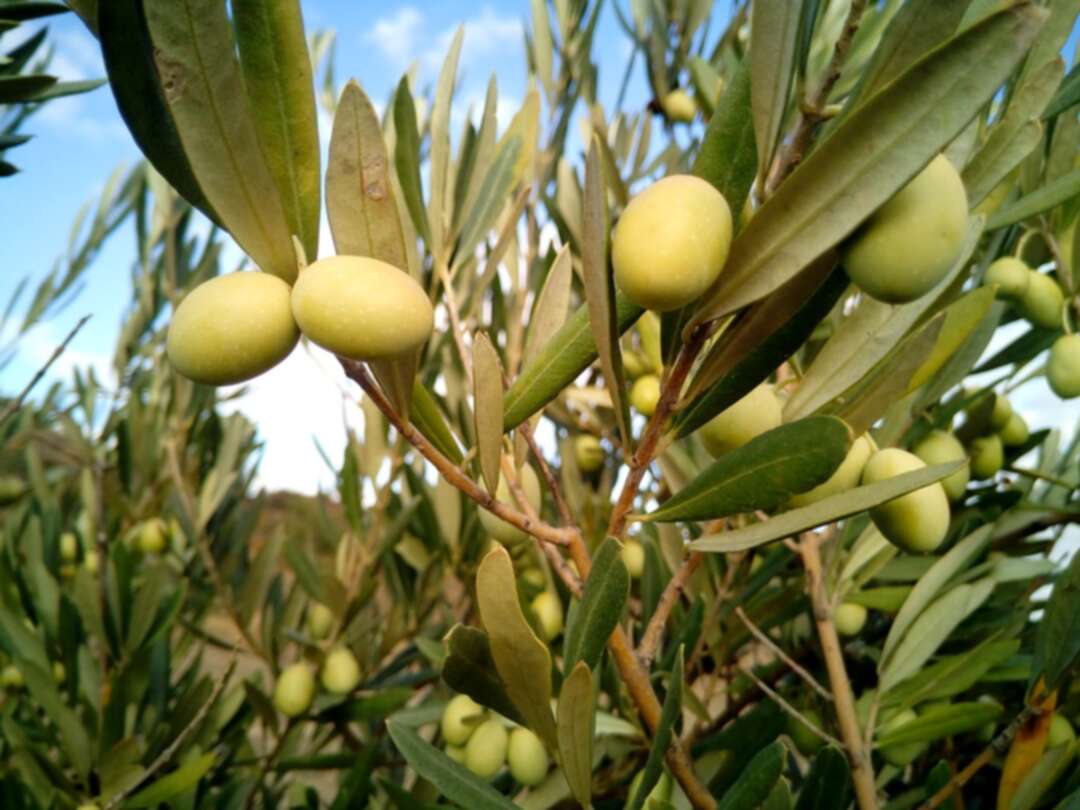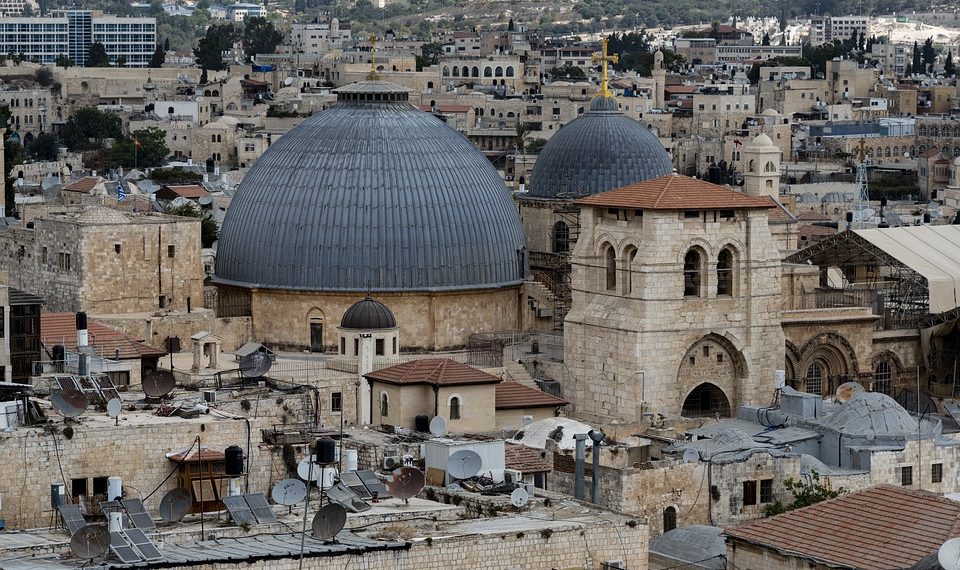-
Palestine olive season this year set to be overshadowed by multiple challenges

As it used to be a festive season, the olive harvest in the Palestinian territories this year looks set to be overshadowed by multiple challenges, such as falling production caused by cold weather, increased olive oil imports from abroad and sporadic attacks from Israeli settlers.
The Xinhua reported, farmers in the Gaza Strip and the West Bank have started the olive harvest season, which will last about 40 days.
According to the Palestinian Ministry of Agriculture in Gaza, about 4,000 hectares of land are planted with olive trees in the Palestinian coastal enclave.
The ministry's spokesman Adham El-Bassiouni told Xinhua that 2021 has witnessed a decline of 60 percent in the olive production because of the harsh climatic condition.
Ammar Hiji, whose father owns 25 hectares of land in the east of the Gaza Strip, also blamed part of the harvest failure on cold weather that harmed the olive trees.

The 29-year-old father of four, however, noted that the most prominent challenge facing the farmers in Gaza is that landowners are importing increased olive oil from abroad.
Read more: Sulfur dioxide cloud from Cumbre Vieja volcano reaches Portugal
For Amer Fayez and many other farmers in the Gaza Strip, olive is a main source of livelihood.
Fayez told Xinhua that he used to spend 12 hours a day picking olives, and the olive harvest season starting October offers him an opportunity to earn 10 U.S. dollars per day.
The situation was no better in the cities and villages of the West Bank as Palestinian farmers there suffer almost daily aggression by Israeli settlers, which even has prompted the launch of a popular Palestinian campaign called Fazaa that aims at protecting farmers across 25 sites of the West Bank during their harvest season.
Read more: Mexico hails opening border with US after more than 18 months of Covid restrictions
Supported by the Palestinian Ministry of Agriculture, the Committee against the Wall and Settlement in the Palestinian Authority, the campaign has attracted dozens of Palestinians, volunteers and owners of agricultural land.
Muhammad Khabisa, a 68-year-old farmer, has welcomed the campaign since he set his foot on his land for the first time in May, as the area has been under the Israeli army control.
Khabisa said as he climbed the stairs to pick olives: "My feeling is indescribable, especially when I saw young activists help me protect my land."
More than half a million Israeli settlers, along with 3.1 million Palestinians, live in the West Bank which was occupied by Israel in 1967. Confrontations between the two sides often turn into violent clashes.
Source: xinhua
You May Also Like
Popular Posts
Caricature
BENEFIT Sponsors BuildHer...
- April 23, 2025
BENEFIT, the Kingdom’s innovator and leading company in Fintech and electronic financial transactions service, has sponsored the BuildHer CityHack 2025 Hackathon, a two-day event spearheaded by the College of Engineering and Technology at the Royal University for Women (RUW).
Aimed at secondary school students, the event brought together a distinguished group of academic professionals and technology experts to mentor and inspire young participants.
More than 100 high school students from across the Kingdom of Bahrain took part in the hackathon, which featured an intensive programme of training workshops and hands-on sessions. These activities were tailored to enhance participants’ critical thinking, collaborative problem-solving, and team-building capabilities, while also encouraging the development of practical and sustainable solutions to contemporary challenges using modern technological tools.
BENEFIT’s Chief Executive Mr. Abdulwahed AlJanahi, commented: “Our support for this educational hackathon reflects our long-term strategic vision to nurture the talents of emerging national youth and empower the next generation of accomplished female leaders in technology. By fostering creativity and innovation, we aim to contribute meaningfully to Bahrain’s comprehensive development goals and align with the aspirations outlined in the Kingdom’s Vision 2030—an ambition in which BENEFIT plays a central role.”
Professor Riyadh Yousif Hamzah, President of the Royal University for Women, commented: “This initiative reflects our commitment to advancing women in STEM fields. We're cultivating a generation of creative, solution-driven female leaders who will drive national development. Our partnership with BENEFIT exemplifies the powerful synergy between academia and private sector in supporting educational innovation.”
Hanan Abdulla Hasan, Senior Manager, PR & Communication at BENEFIT, said: “We are honoured to collaborate with RUW in supporting this remarkable technology-focused event. It highlights our commitment to social responsibility, and our ongoing efforts to enhance the digital and innovation capabilities of young Bahraini women and foster their ability to harness technological tools in the service of a smarter, more sustainable future.”
For his part, Dr. Humam ElAgha, Acting Dean of the College of Engineering and Technology at the University, said: “BuildHer CityHack 2025 embodies our hands-on approach to education. By tackling real-world problems through creative thinking and sustainable solutions, we're preparing women to thrive in the knowledge economy – a cornerstone of the University's vision.”
opinion
Report
ads
Newsletter
Subscribe to our mailing list to get the new updates!






















